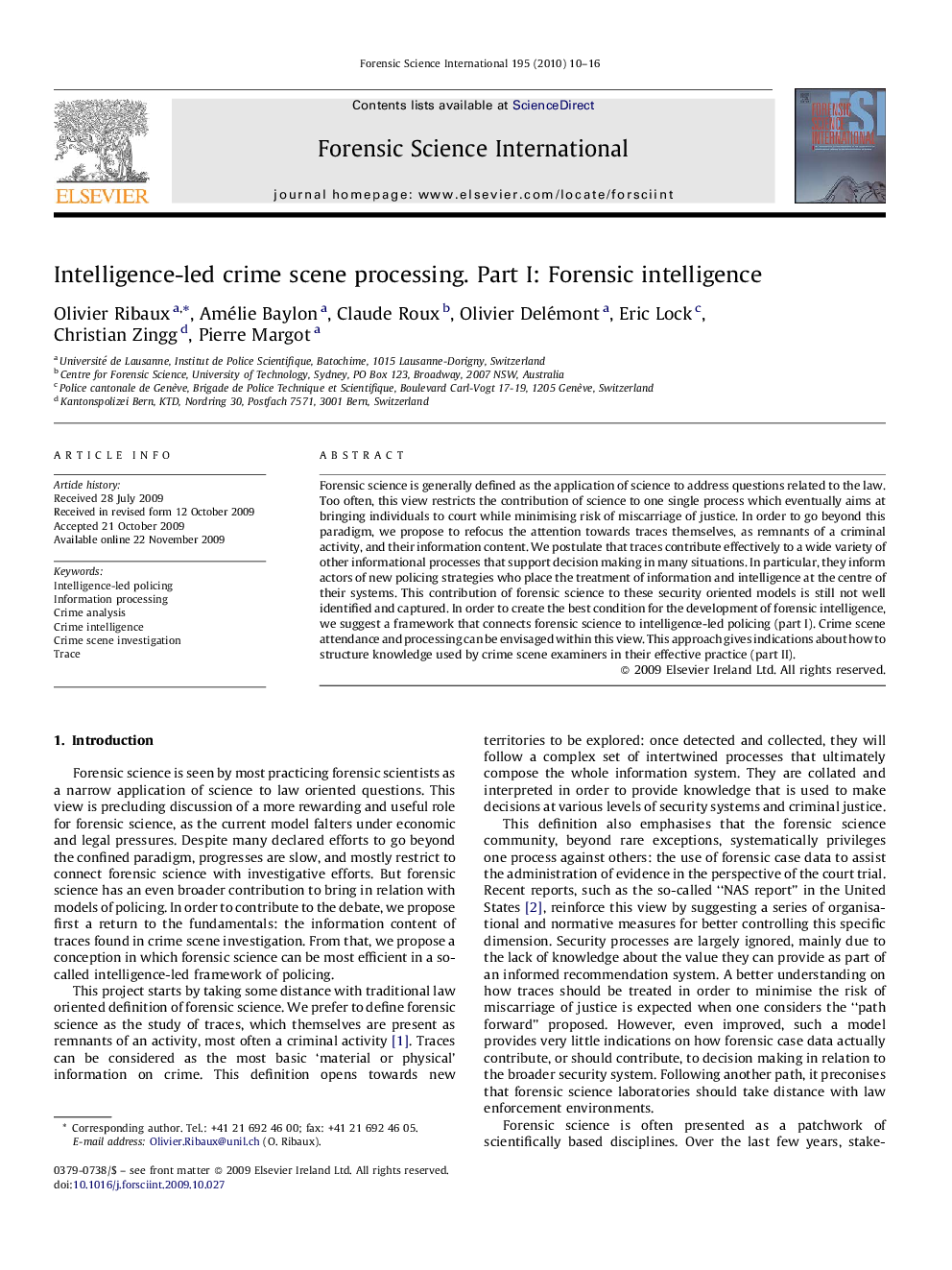| Article ID | Journal | Published Year | Pages | File Type |
|---|---|---|---|---|
| 97186 | Forensic Science International | 2010 | 7 Pages |
Forensic science is generally defined as the application of science to address questions related to the law. Too often, this view restricts the contribution of science to one single process which eventually aims at bringing individuals to court while minimising risk of miscarriage of justice. In order to go beyond this paradigm, we propose to refocus the attention towards traces themselves, as remnants of a criminal activity, and their information content. We postulate that traces contribute effectively to a wide variety of other informational processes that support decision making in many situations. In particular, they inform actors of new policing strategies who place the treatment of information and intelligence at the centre of their systems. This contribution of forensic science to these security oriented models is still not well identified and captured. In order to create the best condition for the development of forensic intelligence, we suggest a framework that connects forensic science to intelligence-led policing (part I). Crime scene attendance and processing can be envisaged within this view. This approach gives indications about how to structure knowledge used by crime scene examiners in their effective practice (part II).
